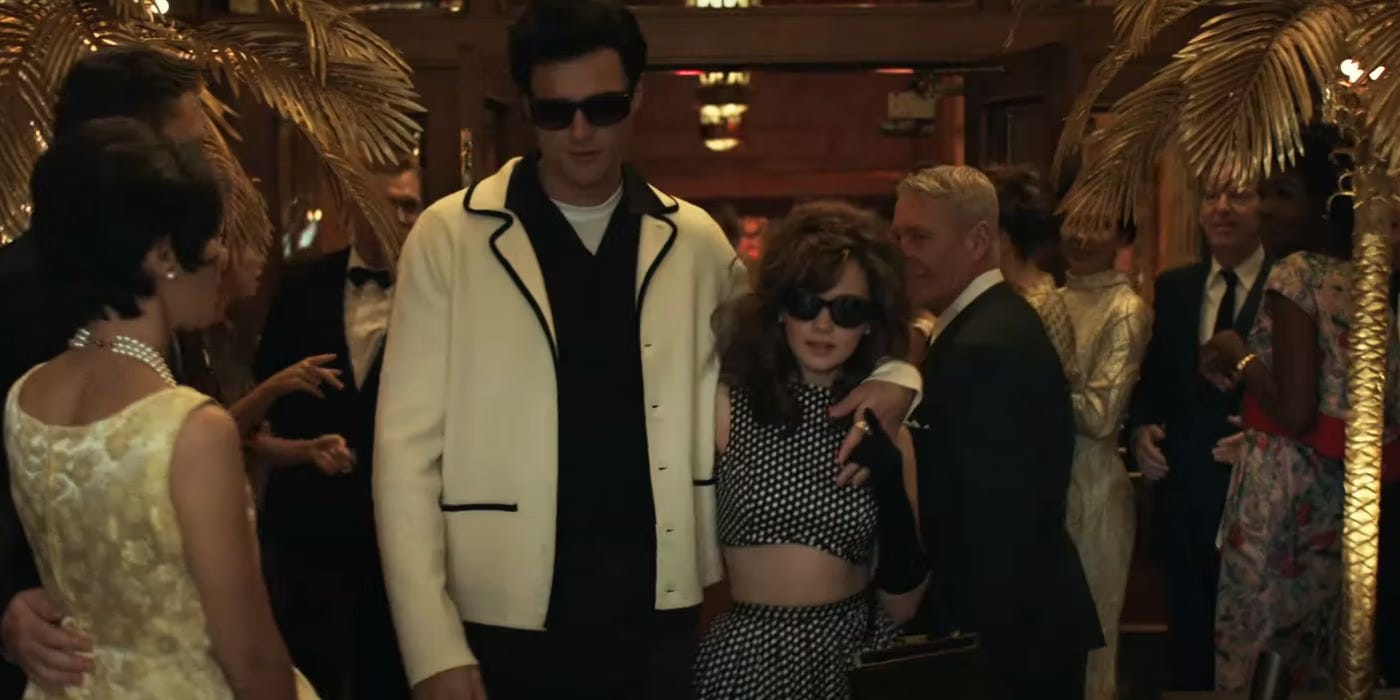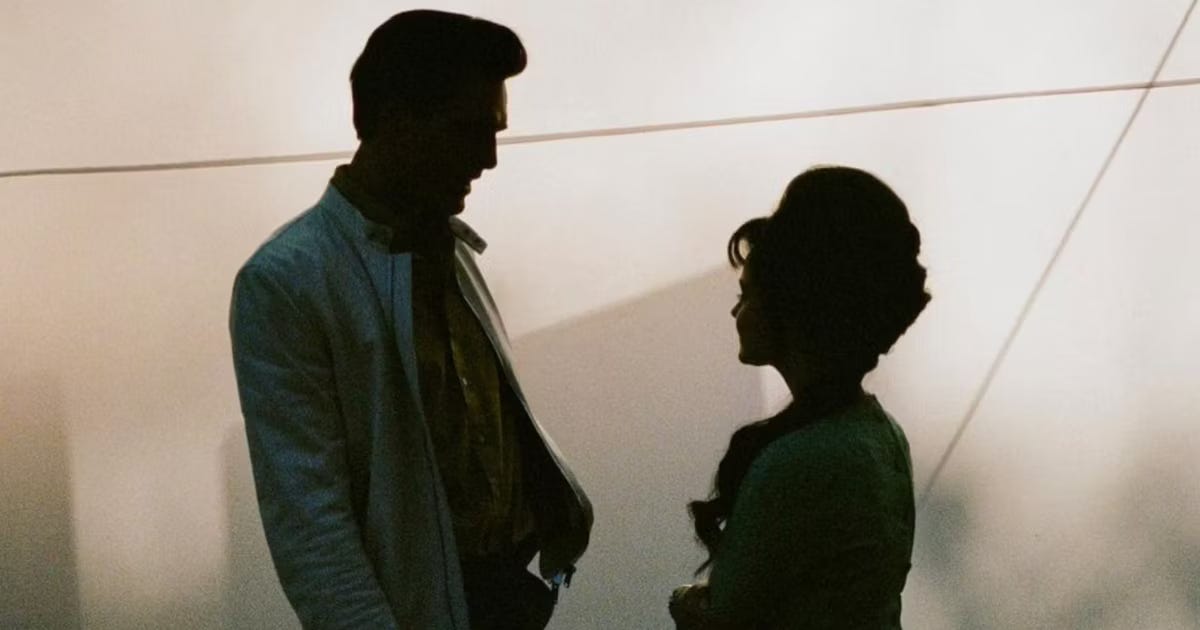Sofia Coppola’s ‘Priscilla’ and The Cult of Unrequited Love
A pitch-perfect biopic delivers cyanide in a styrofoam cup.
At my showing of “Priscilla,” myself and my two fellow moviegoers, who I could only assume were grandparents, were shoved into the back corner of an AMC, in a theater with those uncomfortable folding chairs, at four in the afternoon on a Thursday. The grandparents and I had a grand time, and we truly bonded over those two precious hours we spent together, but all of this is to say that I experienced “Priscilla” in a way that was parallel to the titular character’s in the film: as an afterthought, and, in the most elementary meaning of the word, lonely.
There is a Frank Ocean lyric, from his song “Bad Religion,” that I couldn’t get out of my head for the entire 110-minute runtime of “Priscilla”- “Unrequited love, to me it’s nothing but a one-man cult.” At its core, “Priscilla” is a film about a one-woman cult and the loneliness of unrequited love.
The magic of “Priscilla” lies in the relatability of that experience. Though Priscilla’s situation was certainly unique, the feelings of being lonely in a crowded room, or loving something so much you think you might die without it, are universal. I’ve never been married to a narcissistic superstar 10 years older than me who met me when I was only 14, but I have felt like the light only shone on me when someone else was around. I’ve been in rooms full of people who I believed to be smarter than me, or more worldly than me, and felt alone. I felt those things again while watching “Priscilla,” and it connected her and me. I understood the horrors of her sugar-coated hell, if only through the lens of my own.
Much of that understanding is thanks to the brilliance of the technical aspects of the film. “Priscilla” is cold and dark. The color palette in most scenes is cool tones like blue and gray, and when it’s not, it’s for a narrative reason. The lighting is so dark it’s genuinely hard to see what’s happening on-screen at times. The camerawork carries a brunt of the storytelling weight, with an abundance of wide and lingering shots, the focus almost always on Priscilla herself. She doesn’t have to say much, because the camera catches her every thought. Cailee Spaeny’s performance is beyond impressive. It is so easy to empathize with her. She plays the innocence of Priscilla perfectly while maintaining her strength and intelligence. I never got wrapped up in the glitz and glamor of her life, even though, according to Elvis, she “had everything a woman could want,” because I was too busy wanting better for her, and much of that is Spaeny’s doing. I had many fears about this film, as I believed it to be a very tight rope to walk, and there was barely ever a misstep. What could have been a cheap, money-grab biopic was a gentle, thoughtful exploration of a girl taken advantage of, and her escape from the tyrant of her life. It would have been easy to make a spectacle of the Graceland set or to throw a full Elvis performance in there to please audiences, but it’s obvious Coppola knew what this film had to be and stayed true to a clear vision.
When it comes to the content of the film, it’s simply tragic. I know Priscilla herself maintains to this day a mostly positive view of her relationship with Elvis, but the bottom line is, that she was a baby when that full-grown man began to groom her. He quite literally made her into a living doll, dictating her looks, her tastes, where she went and when, who she knew, what she did and didn’t experience, and every other aspect of her life. In the film, Priscilla’s mother tells her father, that Priscilla “will never forgive them,” if they don’t let her go live with Elvis in Memphis. Well, I personally will never forgive her parents for letting her.
Priscilla’s existence in Elvis’ life is exactly that- his life. This theme is explored in the film, with Priscilla eventually leaving him to “find herself” at age 27, but until that moment, she only exists for him. She lives for the moments when he is with her, for those fleeting seconds of affection. She is constantly bending to his will, something she was quite literally raised by him to do.
The loneliness lives in the longing. The longing to be let into this prison of a man, to be accepted as she is, to have her needs met. She’s kept at arm’s length. She’s never too close, never too far, but just the right distance to hold her in his orbit. It’s what cult leaders do best- draw you in with their false intimacy, and once they have you, keep you isolated and longing for that closeness that will never come.
Ultimately, Priscilla physically escaped her one-woman cult, but those scars run deep. The film ends with a shot of Priscilla driving away from Graceland, hopefully into a life that is entirely her own, but the note is melancholy. Everything is uncertain, and nothing is healed. She is a grown woman, a child, a cultural icon, and a Catholic schoolgirl all at once. There is only the hope that she finds the light that she was longing for within herself, and the comfort that she is finally released from the grasp of a man who had no business with her in the first place.







